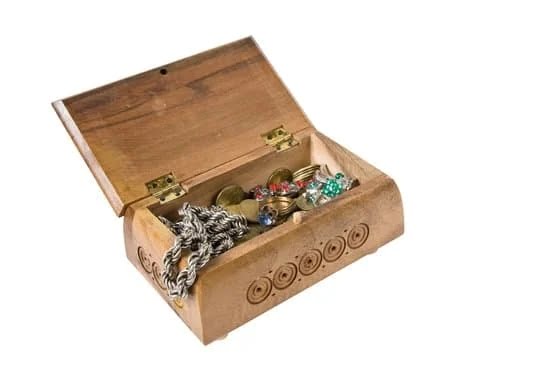How much do fine jewelry salesman make? The role of a fine jewelry salesman is more than just selling luxury items; it involves providing an exceptional customer experience and building lasting relationships. In this industry, the potential earnings can be quite lucrative for those who have the passion and drive to succeed. This article will provide insights into the job description, average salary, commission structure, bonuses, career progression, and tips for success in the world of fine jewelry sales.
A fine jewelry salesman is responsible for assisting customers in finding the perfect piece of jewelry, providing product knowledge, and offering personalized recommendations. They work closely with clients to understand their preferences and guide them through their purchase decisions. Additionally, they may attend trade shows, networking events, and other promotional activities to expand their customer base.
The potential earnings of a fine jewelry salesman can be influenced by various factors such as location, experience level, employer, and sales performance. This article will delve into these factors and provide valuable insights into how they can impact income levels within the industry. Stay tuned to learn more about the exciting world of fine jewelry sales and explore the potential for financial success in this rewarding career path.
Job Description
A fine jewelry salesman is responsible for assisting customers in finding and purchasing high-quality, luxurious jewelry pieces. One of the key duties of a fine jewelry salesman is to provide exceptional customer service by understanding the needs and preferences of each client and offering personalized recommendations.
This may involve educating customers about different types of gemstones, metals, and designs, as well as providing information on the quality and value of each piece. Additionally, a fine jewelry salesman is often required to stay up-to-date with the latest trends and developments in the industry in order to effectively advise customers.
Client Interaction
One of the primary day-to-day tasks of a fine jewelry salesman is engaging with clients who visit the store or contact them through other means such as email or phone calls. This interaction involves building rapport with potential buyers, explaining product features and benefits, showcasing different options available, and ultimately closing sales. Furthermore, maintaining relationships with existing clients for repeat business and referrals plays an important role in a fine jewelry salesman’s responsibilities.
Product Knowledge
In addition to interacting with customers, fine jewelry salesmen need to have comprehensive knowledge about the products they are selling. They must be well-versed in understanding the characteristics of various precious stones such as diamonds, emeralds, rubies, sapphires, etc. as well as different metals like gold, silver, platinum, etc. Being able to explain the intricacies of these elements to potential buyers can significantly impact their decision-making process.
Inventory Management
Another aspect of a fine jewelry salesman’s job description includes managing inventory. This entails keeping track of stock levels for various items including rings, necklaces, bracelets, earrings, and more. It also involves overseeing product displays within the store or at events to ensure that merchandise is presented attractively while also being secure.
Overall, a successful career as a fine jewelry salesman requires dedication not only to assisting clients but also to continuously learning about jewelry products and maintaining excellent salesmanship skills.
Factors Affecting Earnings
When it comes to determining how much fine jewelry salesmen make, there are several factors that come into play. The following list outlines some of the key elements that can impact their income:
- Location: The geographical area where a fine jewelry salesman works can have a significant impact on their earnings. For example, those working in upscale urban markets or affluent neighborhoods may have the potential to earn higher commissions and bonuses compared to those in less affluent areas.
- Experience: As with many professions, experience plays a crucial role in determining the income of fine jewelry salesmen. Entry-level sales associates may start with a lower base salary and commission structure but can expect to see an increase in earnings as they gain more experience and expertise in the industry.
- Employer: The company or retailer for which a fine jewelry salesman works also influences their earning potential. Some employers may offer higher base salaries, generous commission structures, and extensive bonus opportunities, while others may have more modest compensation packages.
These factors collectively contribute to how much do fine jewelry salesman make and illustrate the variability of earnings within this industry. It’s essential for aspiring jewelry sales professionals to consider these factors when evaluating potential job opportunities and negotiating compensation packages.
Average Salary
As a fine jewelry salesman, the potential for earning a lucrative income is quite promising. The average salary of a fine jewelry salesman can vary depending on factors such as location, experience, and employer.
According to data from the Bureau of Labor Statistics, the median annual wage for retail salespersons in jewelry stores was $27,630 as of May 2020. However, it’s important to note that this figure represents the median earnings, meaning that half of the workers in this occupation earned more than that amount, while half earned less.
In addition to the base salary, commission plays a significant role in the income of fine jewelry salesmen. It’s not uncommon for salespeople in this industry to earn a substantial part of their income through commissions from their sales. For top performers who are able to consistently exceed their sales targets and bring in high-value customers, the potential for earning generous commission checks is often within reach.
Furthermore, aside from commission, bonuses and incentives also contribute to boosting the earnings of fine jewelry salesmen. Many employers offer rewards and bonuses for meeting or exceeding sales goals or achieving other performance metrics. These additional forms of compensation can significantly add to the overall income of fine jewelry sales professionals.
| Category | Salary |
|---|---|
| Median Annual Wage | $27,630 (May 2020) |
| Potential Commission Earnings | Vary based on individual performance |
| Potential Bonuses and Incentives | Significant contribution to overall income |
Commission Structure
In the world of fine jewelry sales, commission plays a significant role in determining the income of salesmen. Typically, fine jewelry salesmen earn a base salary, but a substantial portion of their earnings comes from commission. This means that the more successful they are at making sales, the higher their earnings will be.
The commission structure for fine jewelry salesmen is often based on a percentage of the sales they make. This percentage can vary depending on the company and the specific products being sold. For example, some fine jewelry retailers may offer higher commission rates for selling high-end pieces or meeting certain sales targets. Additionally, some companies may offer tiered commission structures, where salesmen can earn higher percentages for reaching higher levels of sales.
It’s important to note that commission rates can also vary based on individual sales performance. In some cases, fine jewelry salesmen who consistently exceed their targets may be eligible for increased commission rates as a reward for their exceptional performance. On the other hand, those who fall short of their targets may see a lower percentage of commission until they are able to improve their performance.
Overall, understanding how commission works and how it can vary based on individual and company performance is essential for fine jewelry salesmen looking to maximize their earnings in this industry. By leveraging their selling skills and meeting or exceeding their targets, they have the potential to significantly boost their income through commission.
Bonuses and Incentives
Fine jewelry salesmen have the potential to significantly boost their earnings through various bonuses and incentives offered by their employers. These additional rewards can come in the form of cash bonuses, luxury vacations, or even valuable gifts such as luxury watches or fine jewelry pieces. The purpose of these bonuses and incentives is to motivate salesmen to achieve and exceed their sales targets, ultimately leading to increased revenue for the company.
In addition to individual performance-based incentives, fine jewelry companies may also offer team-based incentives to encourage collaboration among salesmen and create a positive working environment. These could include rewards for the top-performing team, collectively reaching a certain sales target, or achieving high customer satisfaction ratings.
According to a survey conducted by PayScale, the average bonus for a Jewelry Salesperson in the United States is $4,878. This demonstrates how significant an impact bonuses can have on the overall earnings of fine jewelry salesmen.
| Bonus Type | Average Amount |
|---|---|
| Cash Bonus | $4,000 |
| Luxury Vacation | $6,000 |
| Gifts (e.g. Luxury Watches) | $5,000 |
Career Progression
Advancing in a career as a fine jewelry salesman can lead to increased earnings and professional growth. Here are some key avenues for progression and ways to boost your income in this rewarding industry:
1. Promotions: Many fine jewelry companies offer opportunities for advancement within their sales team. Salesmen who consistently meet or exceed their targets may be eligible for promotions to managerial or supervisory roles. This not only increases their responsibilities but also comes with a higher salary and potentially additional benefits.
2. Additional Training: Continuing education and specialized training can enhance a fine jewelry salesman’s skills, knowledge, and earning potential. Some employers may offer tuition reimbursement or support for obtaining certifications such as the Gemological Institute of America (GIA) credentials, which can open doors to more lucrative opportunities within the industry.
3. Networking: Building a strong network within the fine jewelry industry can lead to valuable connections, mentorship opportunities, and potential job offers with higher-paying positions at other companies.
4. Geographic Relocation: In some cases, relocating to an area with a higher demand for luxury goods like fine jewelry can result in increased earning potential due to higher sales volumes and commissions.
By actively pursuing these avenues for career progression, fine jewelry salesmen have the potential to significantly increase their earnings within this competitive yet financially rewarding industry.
Tips for Success
When it comes to maximizing earnings and excelling in the world of fine jewelry sales, there are several key tips and pieces of advice that can help salesmen achieve their goals. From building strong relationships with clients to staying updated on industry trends, here are some essential tips for success in the fine jewelry sales industry.
Build Strong Relationships With Clients
One of the most important aspects of being a successful fine jewelry salesman is the ability to build and maintain strong relationships with clients. This involves not only providing excellent customer service, but also understanding the individual tastes and preferences of each client. By developing a deep understanding of what each client is looking for and providing personalized recommendations, salesmen can increase their chances of making high-value sales and earning significant commissions.
Stay Updated on Industry Trends
In the fast-paced world of fashion and luxury goods, it is crucial for fine jewelry salesmen to stay updated on industry trends. Keeping abreast of the latest designs, materials, and styles allows salesmen to offer cutting-edge products to their clients, positioning themselves as knowledgeable experts in their field. Additionally, staying current with industry trends can help salesmen anticipate market demands and adjust their selling strategies accordingly, ultimately leading to higher earnings.
Leverage Social Media and Online Platforms
With the rise of e-commerce and social media marketing, fine jewelry salesmen can significantly expand their reach and boost their earnings by leveraging online platforms. Building a strong online presence through social media channels or e-commerce websites can help salesmen connect with a wider audience and attract potential clients from around the world. By effectively utilizing digital platforms for marketing and sales efforts, fine jewelry salesmen can increase their visibility and ultimately drive more revenue.
By following these tips and incorporating them into their daily practices, fine jewelry salesmen have the potential to maximize their earnings, excel in their career, and achieve long-term success in this competitive yet lucrative industry.
Conclusion
In conclusion, the role of a fine jewelry salesman is one that offers the potential for lucrative earnings in the industry. As discussed in this article, factors such as location, experience, and employer can all impact how much fine jewelry salesmen make. Additionally, the commission structure and potential for bonuses and incentives play a significant role in boosting their income.
It is evident from the statistics and research provided that fine jewelry salesmen have the opportunity to earn a substantial income, especially with the potential for career progression through promotions and additional training or certifications. With dedication and commitment to their craft, fine jewelry salesmen can maximize their earnings and excel in their career.
For those considering a career in fine jewelry sales, it is important to keep these key points in mind and understand that with hard work and determination, there is significant potential for financial success in this industry. By following the tips for success provided in this article, individuals pursuing a career as a fine jewelry salesman can position themselves for a rewarding and financially fulfilling profession.
Frequently Asked Questions
What Is a Good Commission Rate for Jewelry Sales?
A good commission rate for jewelry sales typically ranges from 7-10%, although it can vary depending on the type of jewelry and the company. Some companies may offer higher commission rates for luxury or high-end jewelry, while others may have lower rates for more affordable pieces.
It’s important to consider factors like the average sale amount, sales goals, and any additional perks or bonuses when evaluating a commission rate.
What Is the Highest Paying Job in the Jewelry Industry?
The highest paying job in the jewelry industry is often a role as a jewelry designer or a gemologist. Jewelry designers create unique and high-end pieces that can command substantial prices, especially if they gain recognition and a loyal customer base.
Gemologists, who are experts in identifying and evaluating gemstones, also have the potential to earn high salaries due to their specialized knowledge and skills.
How Do I Become a Successful Jewelry Salesperson?
To become a successful jewelry salesperson, it’s important to have a strong knowledge of different types of jewelry, including precious metals and gemstones. Developing excellent communication and interpersonal skills is also crucial, as building relationships with customers can lead to repeat business and referrals.
Additionally, staying updated on industry trends, being familiar with competitors’ offerings, and constantly honing your selling techniques are all key components of achieving success in jewelry sales.

Welcome to my jewelry blog! My name is Sarah and I am the owner of this blog.
I love making jewelry and sharing my creations with others.
So whether you’re someone who loves wearing jewelry yourself or simply enjoys learning about it, be sure to check out my blog for insightful posts on everything related to this exciting topic!





